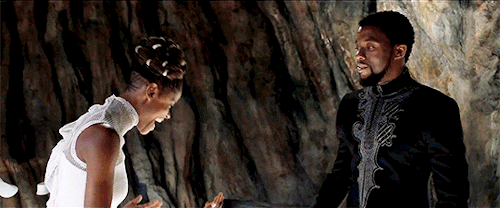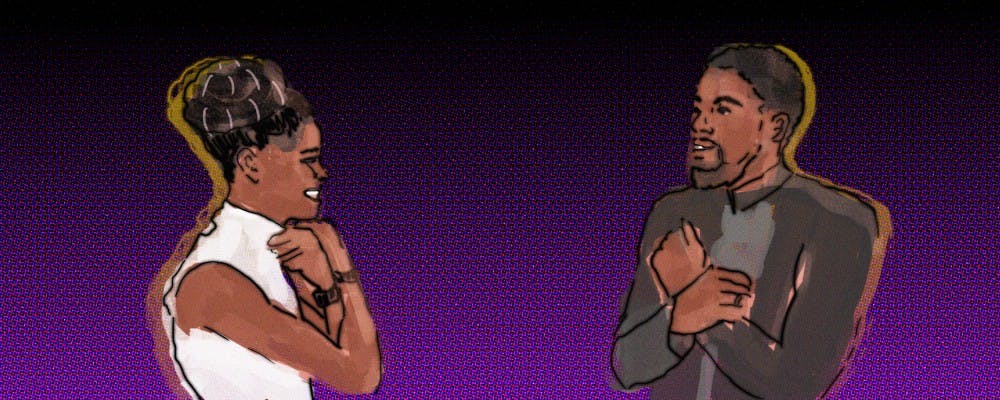In school hallways, young white students greeted each other with the "Wakanda forever" gesture, prompting their Black classmates to pull down their lower lips to check for iridescent Wakandan lip tattoos. Obviously, they didn’t have them.

My friend Jenee Palmer, who is writing her master’s thesis for Equity and Social Justice in Education at San Francisco State, texted me about the experiences of the young students she's been interviewing last Saturday.
While I can imagine the startled looks on the faces of these white kids, and I admittedly find it kind of funny, this interaction begs a larger question about the role of Black Panther in American culture.
To whom does Black Panther belong, and for whom was it made?
In the film, one of the central points of contention lies in whether Wakanda should share its wealth of vibranium and technological knowledge with the world.
Similarly, it is clear that the Black filmmakers, cast, and other creative contributors like Kendrick Lamar have tapped into a wealth of cultural knowledge and beauty with Black Panther. The question now is whether communities of color should feel obligated to share this wealth with White communities who are already making efforts to appropriate it.




